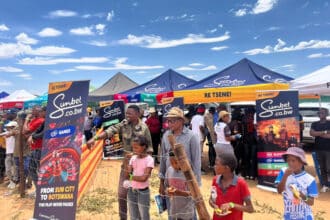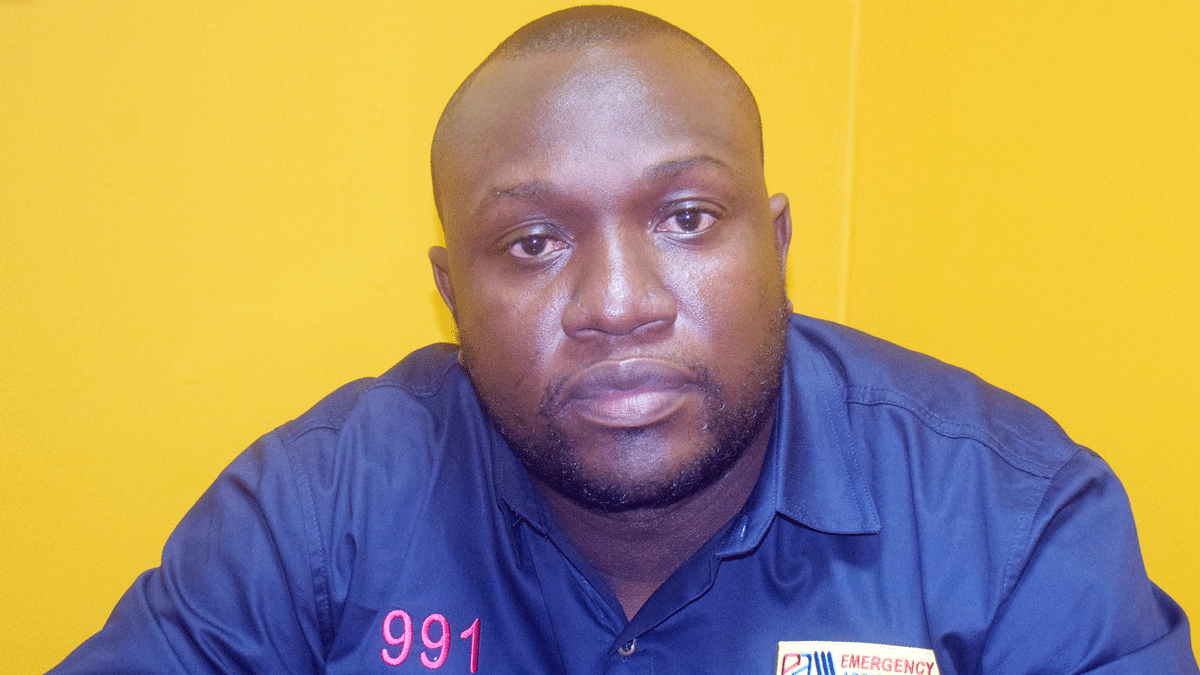Since setting up shop in 2003, Emergency Assist 991 has grown in leaps and bounds.
Originally, the company started with just one branch and a single customer.
Today, that number stands at eight outposts and over 43, 000 clients across Botswana.
Their services include: emergency medical assist, call centre assistance, road assistance and first aid training among others.
Taking readers behind the scenes, the company’s acting CEO, Chiseki Chiseki reflects on the past, ponders over the present and dwells on what the future might hold for Emergency Assist 991 as it closes in on 20 years in the market…
Kindly introduce yourself?
I’m Chiseki Chiseki, I come from Makuta, a small village in the Central District.
I’m 41 years old and happily married with two daughters.
Take us through an average work day?
It’s quite a busy day – remember we operate a 24-hour service!
In the morning, I check my emails to get an idea of what was happening previously: just getting feedback of what happened overnight, some reports and then starting to plan the daily calendar.
So it’s basically reports, directing my management team, attending meetings and giving feedback to executive directors, who come by the office regularly.
Tell us about your career path before joining the company?
I started as an auditor in 2006 after completing my Bachelor of Accountancy at University of Botswana for two years.
Then I joined Emergency Assist, at the time it was called MedCare, for two years.
Later, I left to join Nafpro for five years.
I joined another company which was listed at the stock exchange where I stayed for seven years in finance, driving the growth of the company.
In 2019 I came back to Emergency Assist as finance manager.
Then, in September last year, I was appointed acting CEO until now.
What is Emergency Assist 991’s business model?
We operate mainly in two business models.
We have what we call ‘business to business’, where we sell our products through other companies.
It’s effective because as we grow we try to find the most effective way of selling our products.
Secondly we have where we sell our products directly to the consumer – you just come in and get the service and walk away.
How far does Emergency Assist’s footprint stretch?
Currently we operate eight bases with the intention of expanding them.
We have our head office in Gaborone then other bases in Palapye, Francistown, Kasane, Maun, Letlhakane, Ghanzi and Jwaneng.
But in future we are hoping to expand them.
How relevant is Emergency Assist in a market like Botswana, which offers free health services like public ambulances and medical care?
Emergency Assist is still very much relevant in the market; we are operating in a country where resources are still scarce, more especially in the health care sector.
I wish to mention that currently we do road side evacuation of around 400 in a month, that clearly shows you that there is a market.
Government occasionally engages us for the services we provide in areas they are lacking.
However, we are not really an ambulance service but a solution provider.
How is the industry performing in general, considering Covid-19’s impact on the economy?
Just like any industry we are affected.
We were almost stretched in terms of services we provide, we had to triple our resources.
It came at a very high cost, be it fuel, overtime and maintenance.
However, we also realised Covid-19 was an opportunity for other guys in the industry, so there are other companies which mushroomed which provide more or less what we provide.
What I wish to make clear here is that as much as we are not in competition we are more customer focused.
However, for those coming in we welcome competition.
What post-pandemic strategies have Emergency Assist put in place to give both shareholders and client value for money?
Post Covid-19 we have clearly maintained our standard of service, which we have agreed with our current ownership.
We stick to the service level of agreement we have agreed on.
We constantly try to improve our service, like providing value addition to our products and making sure we don’t erode the bottom line – basically the profit for the shareholders.
What does the future hold for Emergency Assist 991?
There is a lot; we launched ReGenesis Strategy 27 which is going to run for five years.
We intend to expand our products using the existing resources we have.
Then we will expand using strategic partnerships and generally coming up with new products.
In terms of emergency medical services, we are going to open more bases.
In other areas, we are going to exploit partnerships in form of Public Private Partnerships.
We are also looking at primary healthcare trying to establish clinics – that one is a work in progress.
We are not doing something new but delivering our services and taking them closer to people.
I understand you are targeting other areas of expansion too?
We are also intending to take our services to the mining industry because that’s where we have been lacking, to provide tailor-made solutions.
Manufacturing sector is where we want to tap into and [opening] a Technical centre where our customers can come for their one-stop shop.
We also launched our academy, where we teach aspiring drivers who want to acquire licenses; they come and sit in class and it has an e-learning class.
There are other products which we will roll out soon.
Our expansion won’t be confined to Botswana only but to the whole of Southern Africa.
What are some of the challenges Emergency Assist faces?
Our population is a challenge because it’s small.
We commenced operations 19 years ago; when you start something, there is always that lack of trust and confidence in you so we took years striving to make a mark in the market.
Costs which come with operating a business and red tape of acquiring a licence are always an issue.
It took us 3-4 years to get accredited for our driver academy.
Reflecting on the company’s journey to date, what do you look back on with particular pride?
We started with one base but now we have eight.
We are the only emergency medical company which operates eight bases in the private space.
We have a strong partnership with Okavango Air Rescue and recently got a job to do aero medical evacuation for Ministry of Health.
We have two fully configured aircrafts, two helicopters which can reach Botswana as a whole.
We pride ourselves with the fact that we take 2-3 hours to evacuate you from any part of the country.
What sets Emergency Assist apart from its competitors?
The service we provide is quality and that sets us apart from the rest.
Our aim is to make sure our customers are satisfied at all times.
We never leave anyone stranded, money is not our goal but to give the best services ever to the community.
On a personal note, what keeps you busy away from work?
I like relaxing with my daughter and reading books.
Apart from that I also do morning jogs.







